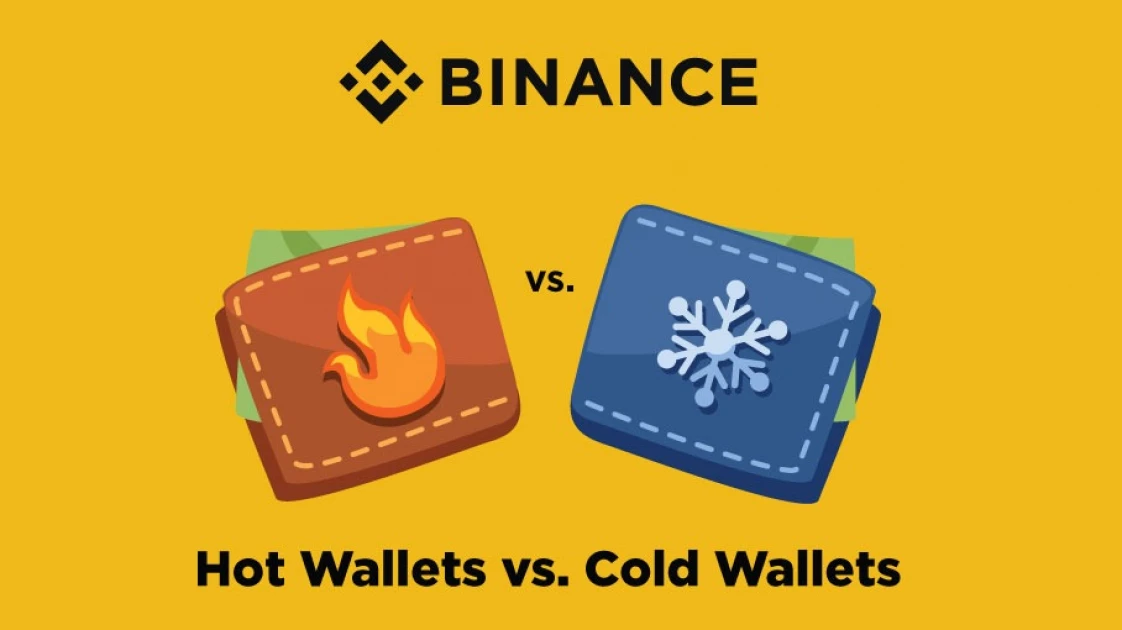Hot Wallets vs. Cold Wallets: Why your crypto is only as safe as your habits


Audio By Vocalize
In the crypto world,
conversations often centre on price charts, tokens, and new blockchain
projects. But one of the most important questions for investors is also one of
the simplest: where do you keep your crypto?
The distinction between a hot wallet and a
cold wallet may sound technical, but it’s really about convenience and safety.
Each type serves a purpose, and the best choice often depends on how you use
your crypto. That’s why at Binance, we place so much emphasis on education and
secure custody options, because how and where you store your funds matters as
much as what you invest in.
Hot wallets are
internet-connected, whether as mobile apps, browser extensions, desktop
wallets, or exchange-hosted accounts. Their biggest advantage is convenience:
they allow you to send, receive, and trade instantly, making them essential for
active traders or those using decentralized finance apps.
Because they live online, hot wallets are
also more exposed to phishing and malware. This is why Binance takes extra
steps to safeguard user funds in hot wallets, from multi-factor authentication
to real-time monitoring. In fact, Binance wallets form part of a layered
custody system that balances accessibility with strong protection. And despite
the risks, hot wallets remain popular: in 2025, surveys show that about 69% of crypto holders
still rely on them as their primary storage.
On Binance, millions of users worldwide
trade safely every day using secure, multi-layered hot wallet systems that
strike a balance between accessibility and industry-leading protection.
Features like two-factor authentication, phishing protection, and real-time
monitoring help ensure users can transact with confidence.
Cold wallets, by contrast,
keep private keys offline. Hardware wallets and paper wallets are the most
common types. They’re popular with long-term holders who don’t need to move
funds often. By staying disconnected, they provide stronger protection against
remote attacks.
Cold wallets come with trade-offs — moving
funds requires extra steps, and like any physical device, they can be lost or
damaged. Binance supports users who prefer cold storage by making it easy to
withdraw assets securely and by offering guidance on safe setup and storage
practices.
For most users, the answer isn’t “hot or
cold” — it’s both. Active traders keep some funds in hot wallets for daily
activity, while placing larger or long-term holdings in cold storage. This
hybrid model combines speed with peace of mind.
Binance applies the same principle at
scale. We use a mix of hot, warm, and cold wallets to safeguard user funds,
supported by industry-leading insurance through the Secure Asset Fund for Users
(SAFU). This system ensures both accessibility for active trading and
protection for long-term holdings.
Ultimately, the safety of your crypto
depends less on the wallet itself and more on how you use it. A cold wallet is
only as secure as where you store its recovery phrase. A hot wallet is only as
safe as the care you take when clicking links or approving transactions.
That’s why Binance invests not only in
technology but also in user education. Through Binance Academy, millions of users learn best practices:
keeping recovery phrases offline, double-checking transaction details, updating
wallet software, and separating funds for different uses.
To help users build these habits, Binance
Academy offers free guides and tutorials. Binance wallets also include built-in
safety tools like withdrawal whitelists, 2FA, and phishing link protection,
combining technology with education to help users trade confidently.
Wallets are tools. Hot wallets provide
speed, cold wallets provide durability, and both can be effective when matched
with the right habits. At Binance, we believe the real key to crypto safety
lies in the discipline of the person holding it — supported by secure
platforms, trusted infrastructure, and the right knowledge.


Leave a Comment